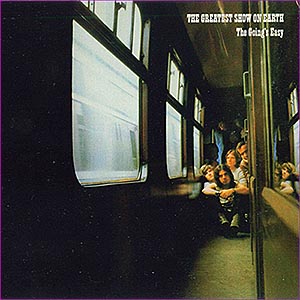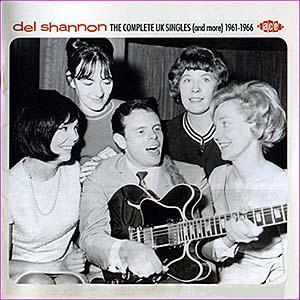Year:
27 August 1976 (CD Dec 22, 2010)Label:
Sanctuary Records (Japan), UICY-20143Style:
Folk Rock, Acoustic, RockCountry:
UKTime:
35:39Format:
Flac Tracks 16/44,1 kHzSize:
210 MbWhere Fairport Convention found ways of merging traditional British folk music with the emerging rock sounds of the ’60s and ’70s, Pentangle took that same music and gave it a jazz-and-blues twist, whether via their original songs, well-worn trad material like "Let No Man Steal Your Thyme" or, as on the live section of this double album, interpretations of Charles Mingus and Furry Lewis compositions. Pentangle were among the leading lights of British folk-rock. I’m tempted to say ‘are’ because the band have sometimes reformed in both altered configurations and the original one, although the latter is now an impossible proposition, given that Bert Jansch and John Renbourn have died. Sweet Child was the second in a run of excellent albums they made for the Transatlantic label before moving to Reprise (who’d issued their albums in the US from the start) for 1972’s Solomon’s Seal which brought to a close their first chapter as a band. If you’re a newcomer to the Pentangle fold, then great pleasures await you.
Sweet Child was the group’s only double-album, made so by its first two sides being taken up by a triumphant 29th June 1968 concert at the Royal Festival Hall, London. The group’s repertoire was already so large that barely any of the tracks from the live performance were duplications of songs from their studio albums – a reflection not only of the band’s adventurousness but also their audience’s ability to accommodate it. On the third and fourth side of Sweet Child, they unveiled their second album proper. These were the days of recorded product being demanded at breakneck speed. Their debut had appeared in May 1968. Sweet Child came in November the same year.
Both LPs were produced by American Shel Talmy, who would remain on board for the following year’s Basket of Light, the band’s bestseller. Talmy was a native of Chicago who’d moved to London in the early 1960s and joined Decca, telling tall tales of producing the Beach Boys to open doors. He eventually helped both the Kinks and the Who forge their distinctive sounds. Having an American producer, inclined to understand the breadth of Pentangle’s musical tastes where a more staid Decca alumnus might not have, was a masterstroke for the band. Encompassing everything from jaunty folk dances to experimental jazz, their albums had an appealing air of mysticism (emphasized by their medieval- and occult-tinged front covers) and a simultaneous earthiness. As is so often the case, what on paper were incongruous musical ingredients in practice worked beautifully together.
Quite why Pentangle haven’t ended up being seen in the same light as Fairport Convention is apparent if you move a little farther ahead in their discography. Listen to "Sally Free and Easy", the first track on 1972’s Solomon’s Seal, and you’ll hear how little they changed during their classic run of albums. By contrast, Fairport shifted gears with each release from 1968’s Fairport Convention up to and including 1975’s Rising For the Moon, and although there were missteps along the way, they hit an unrivalled peak with Unhalfbricking and Liege & Lief. Consequently, music history favors them over Pentangle.
However, as they demonstrate on the original songs in the studio segment of Sweet Child, Pentangle had the edge when it came to intricate rhythms, musicianship and challenging time signatures. Their sound was prettier, cooler, more ornamental and decorous. An unmistakable jazz sensibility informs their work, giving it a smokiness and a distinctive urbanity. Listen, for example, to the way the title track of Sweet Child builds in intensity as Terry Cox cycles through a series of utterly dazzling rhythm patterns. "Sovay", the tale of a female highwayman, is a bracing little trad number and there’s even a musical tribute to Moondog, the fabled blind street musician who recorded for Columbia. The high point, however, is "The Trees They Do Grow High". Its mournful melody is expertly painted by lead vocalist, Jacque McShee (she sounds like an immaculately played woodwind instrument, almost flawless), while Cox delivers his finest, most thrilling percussion arrangement.
Having a voice as clear and swooping as McShee’s and guitarists as nimble as Renbourn and Jansch, were just a few of the numerous aces up the band’s sleeve. They also had, in Danny Thompson, an exceptional double bassist. Pentangle didn’t put a foot wrong during their first run of albums and Sweet Child was a remarkable second statement. As it re-emerges on vinyl for its fiftieth birthday, it deserves nothing less than a warm welcome. Real Gone’s ventures into vinyl have included excellent outings for Tim Buckley’s final two albums, and although they seem to favor digital sources, care is taken to make the final result sound and look pleasing.
(www.popmatters.com/pentangle-sweet-child-turns-50-2601840684.html) (By Charles Donovan. 7 September 2018)
01. Sally Free and Easy (03:59)
02. The Cherry Tree Carol (03:04)
03. The Snows (03:48)
04. High Germany (03:20)
05. People on the Highway (04:46)
06. Willy O' Winsbury (05:56)
07. No Love is Sorrow (02:47)
08. Jump Baby, Jump (03:14)
09. Lady of Carlisle (04:44)



KatFile TurboBit GigaPeta

















































